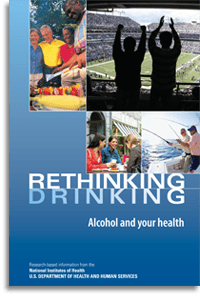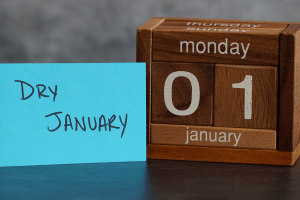Alcohol Awareness Month: Learn About Alcohol Use Disorder and Ways to Get Help
April is Alcohol Awareness Month, a good time to reflect on our drinking patterns and the role that alcohol plays in our lives.
Most adults in the United States who drink alcohol drink moderately and without complications. At the same time, alcohol-related problems are among the most significant public health issues in the country. Alcohol use disorder (AUD) affects about 15 million adults in the United States, and an estimated 88,000 people die from alcohol-related causes annually, making alcohol the third leading preventable cause of death in the nation.
How do you know if drinking alcohol has become a problem for you or a loved one? And where do you go for help if it has?
One way is to learn more about AUD. AUD is a medical diagnosis that ranges from moderate to severe, with the severity based on several criteria. But, briefly, alcohol becomes a problem when it impacts your life in a negative way. For example, is your personal or work life deteriorating because of your drinking? Have you had times when you drank more, or longer, than you intended? Are you drinking to feel better? Are you drinking to cope with stress or other problems? Do you feel anxious or irritable without a drink? For more information about the criteria for AUD, see https://pubs.niaaa.nih.gov/publications/dsmfactsheet/dsmfact.htm.
If you recognize any of these symptoms in yourself, it’s time to rethink the role that alcohol plays in your life. NIAAA has some interactive resources to help you examine your drinking patterns further and, if needed, recognize and search for quality care.
Rethinking Drinking is resource that can help you assess your drinking habits and provide valuable, research-based information to help you cut back or stop drinking if needed. It is available online as an interactive tool at https://www.rethinkingdrinking.niaaa.nih.gov and as a brochure that can be downloaded at https://pubs.niaaa.nih.gov/publications/RethinkingDrinking/Rethinking_Drinking.pdf.
As I discussed in my previous blog post, NIAAA also has an important new website that can help you navigate the often complicated process of choosing treatment for alcohol problems.
The NIAAA Alcohol Treatment Navigator helps you search for professionally led, evidence-based alcohol treatment. It is a comprehensive, yet easy-to-use, tool. Many treatment options are available, and the Navigator makes the search easier by telling you what you need to know–and what you need to do–to find appropriate, quality care nearby. It is available at https://alcoholtreatment.niaaa.nih.gov.
During Alcohol Awareness Month, please review our website to learn more about how NIAAA supports research and initiatives to generate and disseminate fundamental knowledge about the effects of alcohol on health and well-being, and how we apply that knowledge to improve the diagnosis, prevention, and treatment of alcohol-related problems. I also encourage you to take a close look at Rethinking Drinking and the Alcohol Treatment Navigator to learn more about AUD and how to find quality care to address it.
Best wishes, GFK
Need Help for an Alcohol Problem?
If you’re having an emergency, call 911. If you are having suicidal thoughts, call 911, go to the nearest emergency room or call the toll-free, 24-hour National Suicide Prevention Lifeline at 1-800-273-TALK (8255) to help you through this difficult time.
The NIAAA Alcohol Treatment Navigator can help you recognize and find high quality treatment for alcohol use disorder. If you drink excessively, seek medical help to plan a safe recovery as sudden abstinence can be life threatening. NIAAA’s Rethinking Drinking can help you assess your drinking habits and provides information to help you cut back or stop drinking.









